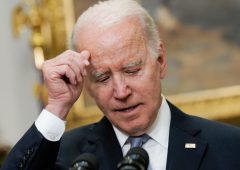India to Develop Comprehensive Crypto Policy by September
26.07.2024 10:00 2 min. read Alexander Stefanov
India's central bank, the Reserve Bank of India (RBI), and the Securities and Exchange Board of India (SEBI) are collaborating with an inter-ministerial group to develop a comprehensive cryptocurrency policy.
This initiative signals a potential shift in the country’s regulatory stance on digital currencies, with a discussion paper expected by the third quarter of 2024.
RBI and SEBI are joining forces with other government entities to draft a new crypto policy for India. Economic Affairs Secretary Ajay Seth announced that the discussion paper will collect feedback from various stakeholders on proposed regulations.
Currently, India’s approach focuses on anti-money laundering (AML) and counter-terrorism financing (CTF) measures, which were extended to crypto assets and intermediaries in March 2023.
The discussion paper will explore major policy questions and the regulatory scope for cryptocurrencies, amid differing views within Indian authorities.
SEBI is open to private virtual asset trading, while the RBI remains concerned about potential macroeconomic risks. This marks a significant development following the Supreme Court’s 2020 decision to overturn the RBI’s 2018 ban on crypto-related financial services.
The forthcoming paper is expected to align with the G20-endorsed IMF-FSB framework, advising against outright bans on crypto activities. SEBI’s recommendation for multiple regulators to oversee crypto trading nationwide has received attention, suggesting a potential shift towards a more inclusive regulatory approach.
In summary, the collaboration between RBI and SEBI to develop a comprehensive crypto policy represents a significant step towards a balanced and inclusive regulatory environment for cryptocurrencies in India. The upcoming discussion paper aims to reconcile differing viewpoints and establish a robust framework for digital assets.
-
1
Japan Plans Major Crypto Reform with New Tax Rules and ETF Access
24.06.2025 20:00 2 min. read -
2
Gemini Launches Tokenized MicroStrategy Stock for EU Users
28.06.2025 9:30 2 min. read -
3
Here is When the U.S. House Will Vote on Key Crypto Bills
04.07.2025 12:00 2 min. read -
4
U.S. Crypto Investors Hit by IRS Letter Surge as Tax Crackdown Looms
29.06.2025 11:00 3 min. read -
5
Ripple Drops Cross-Appeal, Moves to End SEC Case “Once and for All”
28.06.2025 12:30 2 min. read
Senate Confirms Crypto-Linked Nominee Jonathan Gould to Head OCC
The U.S. Senate has confirmed Jonathan Gould as the next head of the Office of the Comptroller of the Currency (OCC), moving his nomination to President Donald Trump for final approval.
Australia Tests CBDCs in 24 Separate Real-World Finance Use Cases
Australia is stepping up its digital currency efforts with the next phase of Project Acacia, a pilot focused on testing central bank digital currency (CBDC) and tokenized finance in real-world applications.
U.S. Treasury Eliminates Crypto Reporting Rule Targeting Decentralized Exchanges
According to Bloomberg the U.S. Treasury Department has officially eliminated a controversial crypto reporting requirement that targeted decentralized exchanges.
U.S. Lawmakers Target El Salvador With Crypto Sanctions Plan
Three Democratic senators—Chris Van Hollen, Tim Kaine, and Alex Padilla—unveiled a bill aiming to penalize El Salvador’s President Nayib Bukele and his allies.
-
1
Japan Plans Major Crypto Reform with New Tax Rules and ETF Access
24.06.2025 20:00 2 min. read -
2
Gemini Launches Tokenized MicroStrategy Stock for EU Users
28.06.2025 9:30 2 min. read -
3
Here is When the U.S. House Will Vote on Key Crypto Bills
04.07.2025 12:00 2 min. read -
4
U.S. Crypto Investors Hit by IRS Letter Surge as Tax Crackdown Looms
29.06.2025 11:00 3 min. read -
5
Ripple Drops Cross-Appeal, Moves to End SEC Case “Once and for All”
28.06.2025 12:30 2 min. read


